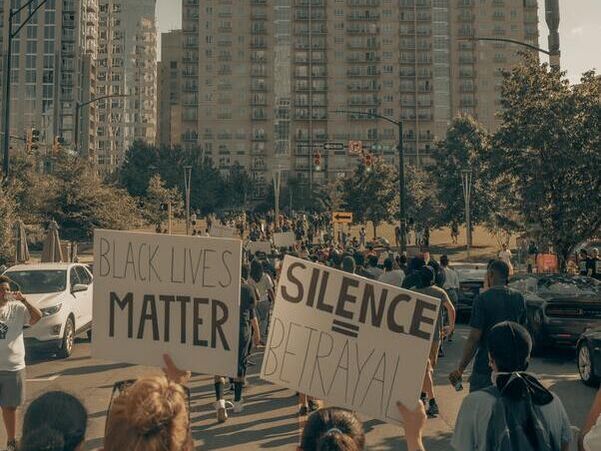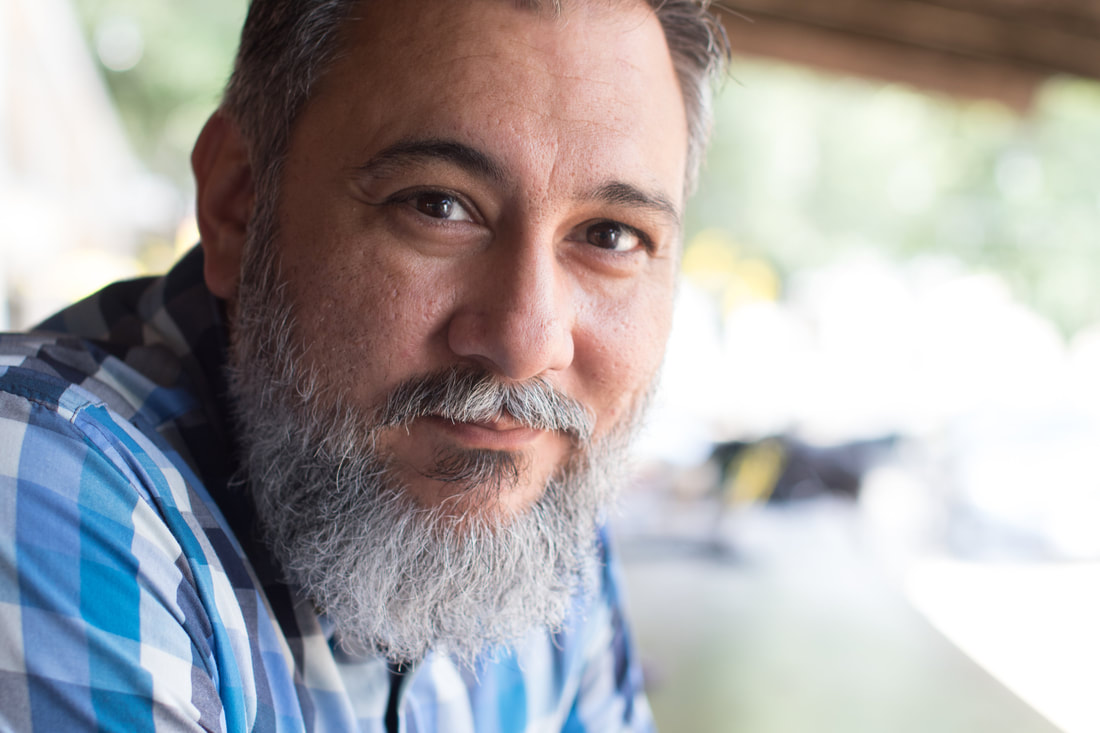|
First, A Statement of Solidarity I want to start by expressing my heartbreak and indignation for what is happening in our country and for the stolen lives of George Floyd, Ahmaud Arbery, Breonna Taylor, and countless other Black Americans as a direct result of systemic racism. My heart goes out to the families of these innocent people and to all Black and marginalized people of color who are grieving today. I am outraged that we, as a nation, cannot seem to shake our bloody history of bigotry and hatred. Our justice system and institutions continue to demonstrate, decade after decade, that Black lives are inherently suspect and expendable. White supremacy is not just espoused by a few radical white nationalists. It is actually something much more widespread and insidious. White supremacy is baked into our culture. It’s in you, and it’s in me. And until we can all see that, nothing will ever change. The Responsibility of White Privilege Now, it would be impossible for anyone to talk about any of this without offending someone or triggering some defensiveness or negative emotion. If you’ve already been triggered by what I’ve said so far, what I am about to say is not going to be any easier. White people recoil from the phrase “White Privilege,” because A) they are not use to being labeled by their race, which in and of itself is illustrative of having privilege, and B) the term privilege seems to indicate that their lives are free of struggle, or that their accomplishments are not earned. There is a lot of meaning and history packed into this term. I challenge you though, to stick with it. All White Americans have White privilege. This is not a judgement or admonishment on White people. It is a statement of fact. While all White people have White privilege, it doesn’t mean they are bad or racist. But it does mean they are responsible to acknowledge it and act with that awareness. Just like as an adult you are responsible for the emotional injuries your parents may have incurred. Sure, you can blame them and say it’s their fault (and they could do the same with their parents). But as an adult, you are responsible for your own mental health going forward. That’s what it means to be an adult. When people argue that “All Lives Matter,” it is apparent that they do not see their privilege. When people say they are “color blind,” it is apparent that they do not see their privilege. These are “good” people, who honestly have no ill will toward other races or marginalized groups. I believe you! I know you want to believe that everyone is equal and that you are on the right side of the issues. Unfortunately, this is just wishful thinking. Delusion. If you believe everyone is already equal, then there is no impetus to act. You can rest comfortably in a Benetton commercial of your own making without any pressure to examine your biases and prejudice. Yes, you do have them. Remember, not your fault! But, yes, it is there and it is your responsibility to unearth it and call it out. If you are unwilling to do this, you are the problem. It takes courage to examine yourself in this way and it can be painful. This is your job. Attending protests and sharing social justice memes on social media does not acquit you of your privilege. Is Racism a Form of Mental Illness? Racism does not appear in the DSM-V (Diagnostic and Statistical Manual of Mental Disorders- Fifth edition) as a diagnosable condition. However, I would argue that extreme forms of racism, where the person has strong emotional reactions to specific groups, like paranoia, superiority, etc., fit other categories of mental illness like Delusional Disorder. To believe that you belong to a superior race is not just an opinion. It is a false belief that is scientifically inconsistent with reality. This isn’t a moral statement. It is a fact. So far, in my 17 years of treating clients in therapy, I have never met a “true” racist; someone who overtly opposes racial equality. But I have met some narcissists, misogynists, homophobes, and Southern folk who claim a certain pride in their Southern heritage, despite the legacy of bigotry. But by far, the majority of my clients are White and politically moderate to left leaning. My training as a therapist included courses in multicultural issues. The focus of these courses aim to bring awareness of how to help marginalized or oppressed people and to examine our own prejudice and bias in order to better serve them. But none of this multicultural training could answer the question of how to deal with clients who have the power to oppress others. Recent events have prompted me to search within myself for the answer. First of all, therapist are bound by a code of ethics. These ethics promote social justice and a responsibility to the welfare of the community at large. This includes marginalized groups with disparities in wealth and access to services. It also promotes the autonomy of the individual and to remain unbiased toward their values and beliefs. Hmmm, seems there is a bit of a conundrum here. How can you both support social justice and at the same time allow racist beliefs to go unchecked in the service of being “unbiased?” Like I mentioned before, racism is a delusion, not a value. I have no qualms about challenging other forms of delusion. For example, if someone believes they are not worthy of love. The value isn’t that they are worthless, it is that they are worthy and their beliefs are at odds with what they value. That is why it’s a problem in the first place. Their programming is incongruent with what their spirit/soul knows to be true. So I support the values that they are worthy, while challenging the mistaken beliefs that they are not. Racists do not value racism. Racism is the delusion that supports a misguided solution to getting their needs met; those of belonging and acceptance. Don’t we all want to feel that? I would support the need to belong and acknowledge their inherent value as a human being, while challenging the erroneous control strategy of believing that this can only be true because of their race. Unfortunately, racists do not go to therapy because they realize they are racist and are looking for remediation. At least, not in my experience. Racists Are Not the Problem. Racism Is. It’s easy enough to sit back and put the blame on the few nut jobs who commit murder and overt acts of violence toward Blacks and people of color. It is easy to separate yourself from “these people.” You are not one of them. You don’t use the N-word. Of course not. But this is White privilege at it again. White privilege gives you the power to let yourself off the hook. When you do that, racism persists. The status quo remains. “If you are neutral in situations of injustice, you have chosen the side of the oppressor.” -Desmond Tutu Like card carrying White Nationalists, regular, well-meaning White folks do not often come to therapy to address their unconscious biases. Perhaps this will change in light of recent events. Perhaps our consciousness has been raised as a result of these innocent victims of brutality and injustice. I hope that is true and that their lives were not a complete waste of humanity. As a therapist, I am keenly interested in clarifying values. My clients are able to identify what is important to them and how they want to live meaningfully in this world. Usually, the life domains that get examined the most have to do with their relationships with spouses, children, parents, their commitment to health and personal growth. It is rare that people prioritize their relationship to the community at large or their global and civic responsibilities. I don’t have an answer to this. It’s just an observation. Again, maybe this will change. I invite you to consider your values as they pertain to racial injustice. I have heard more than enough times in the past week, “I just don’t know what to do about all of this.” I hear you. Something in there, though, tells me it would be an important and meaningful action to you if you did. What if you didn’t have to pretend your privilege didn’t exist, but instead used it to further the cause of racial justice? May I offer a few suggestions? How To Be Anti-Racist
For a more extensive list of Anti-Racist Resources, please visit: bit.ly/ANTIRACISMRESOURCES
0 Comments
Leave a Reply. |
AuthorJiovann Carrasco, LPC is a psychotherapist in Tucson, Arizona and the author of How To Feel: A Guide to the Mindful Life. Archives
July 2021
Categories |
Notice of Privacy
| |||||||||
| noticeofprivacy.pdf | |
| File Size: | 39 kb |
| File Type: | |
Affiliate Disclosure
As an Amazon Associate I earn commission on any qualifying purchases made through links on this page.
"Your vision will become clear only when you can look into your own heart. Who looks outside, dreams; who looks inside, awakes." - Carl Jung |
Contact Me
|


 RSS Feed
RSS Feed